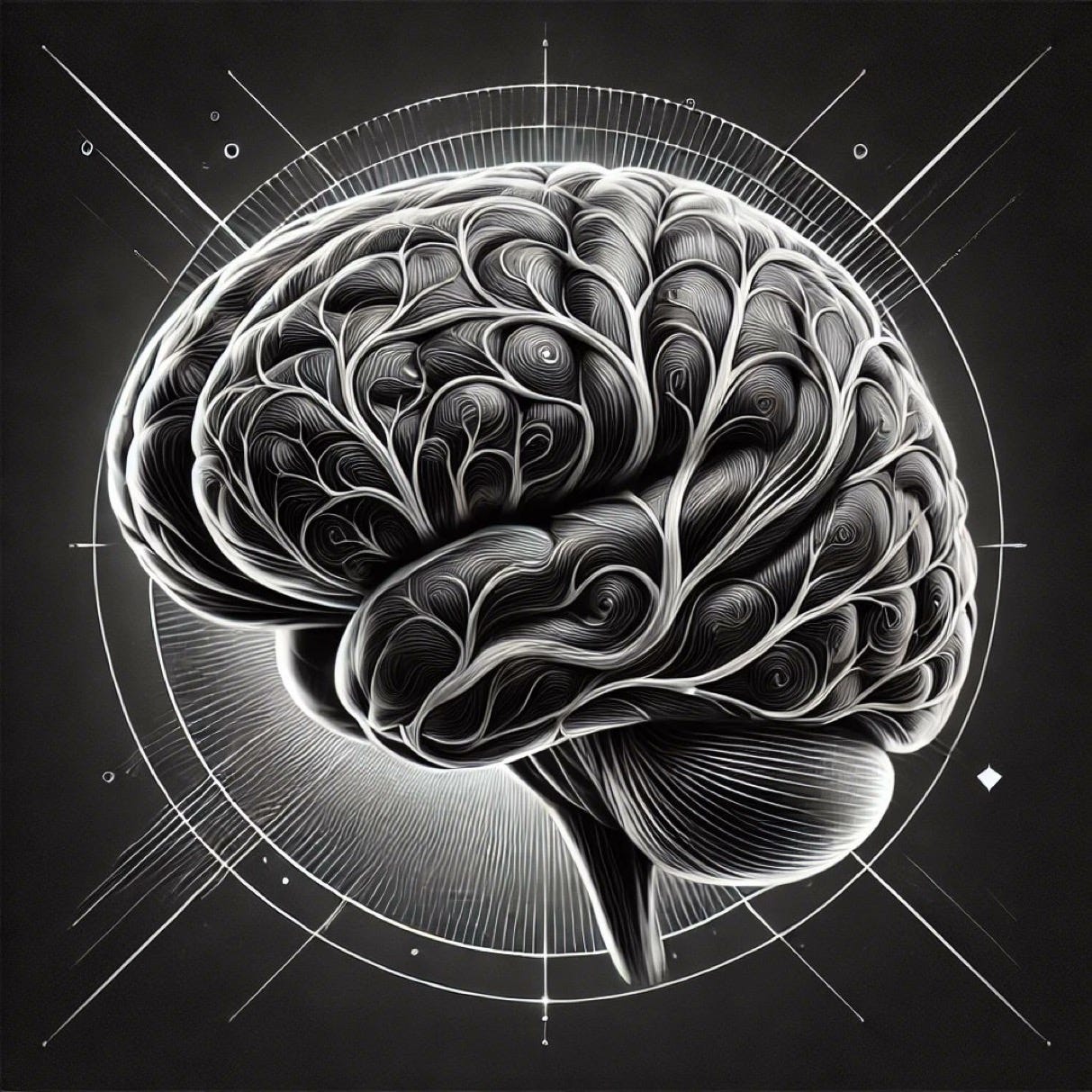Veins of Ruin: Vascular and Microvascular Damage to the Brain from COVID-19, and a Friend
SARS-CoV-2 (COVID-19) is proven to cause a range of neurological complications, some of which are linked to vascular and microvascular damage in the brain.
For me, vascular damage to anything is probably the scariest of all the things COVID-19 can cause. I have had heart and vascular issues for decades, so anything vascular freaks me out. It caused heart and brain issues that terrified me for decades. My issues were different than my friend's, as mine started for an unknown reason, whereas Dara’s was Covid-19 and caused a stroke.
Mine started as a young husband, almost thirty years ago. My fear is still heart-related, but many are having brain issues, like my friend. That is why today, I want to focus on the brain.
We know that SARS-CoV-2 affects the brain and mind, and we know the underlying mechanisms causing this damage are real.
What is the possible damage?
Endothelial Dysfunction and Blood-Brain Barrier (BBB) Disruption
The endothelial cells, which line the blood vessels, play a critical role in maintaining the integrity of the blood-brain barrier (BBB). SARS-CoV-2 can cause endothelial dysfunction, leading to a compromised BBB. This disruption allows harmful substances, including inflammatory cytokines, to infiltrate the brain, potentially causing neurological damage[1][3][10].
Microvascular Injury
Microvascular injury in the brain has been observed in COVID-19 patients, characterized by fibrinogen leakage, platelet accumulation, and activation of the coagulation system. These changes can lead to occlusion and damage to small blood vessels, contributing to neurological symptoms[8][10]. The resulting microvascular damage can cause ischemia, tissue edema, and inflammation, further exacerbating neurological complications[9].
Neurological and Cognitive Effects
Acute and Long-Term Neurological Symptoms
COVID-19 can lead to a wide range of neurological symptoms, both acute and long-term. Acute symptoms include strokes, encephalopathy, seizures, and encephalitis, while long-term effects may involve chronic neurodegenerative changes, such as those seen in Alzheimer's and Parkinson's diseases[2][4]. The virus's impact on brain regions responsible for cognitive functions can result in symptoms like brain fog, memory loss, and impaired executive function[4][6].
Cognitive Impairment and Dementia
The vascular damage caused by SARS-CoV-2 can lead to vascular cognitive impairment, which may manifest as difficulties in attention, planning, and judgment. These cognitive challenges can progress to vascular dementia, especially in cases where multiple small strokes or significant vascular damage occur[5][6].
Mechanisms of Vascular Damage
Direct and Indirect Mechanisms
SARS-CoV-2 can affect brain vasculature through both direct and indirect mechanisms. While direct infection of endothelial cells by the virus has been debated, the prevailing hypothesis suggests that the virus causes endothelial injury indirectly through an excessive inflammatory response. This inflammation can impair the antithrombogenic properties of the endothelium, leading to thrombosis and vascular occlusion[3][8].
Role of Immune Response
The immune response to SARS-CoV-2 involves the activation of various pathways, including the NF-κB signaling pathway, which can lead to endothelial activation and increased BBB permeability. This immune activation can result in neuroinflammation and contribute to the neurological symptoms observed in COVID-19 patients[9][10].
SARS-CoV-2 has significant implications for brain health, primarily through its impact on the vascular system. The virus can cause both acute and chronic neurological damage, with long-term effects potentially leading to cognitive impairment and dementia. Understanding these mechanisms is crucial for developing strategies to mitigate the neurological impact of COVID-19 and improve patient outcomes. Further research is needed to fully elucidate the pathways involved and to explore potential therapeutic interventions.
Sources
[1] Cerebral microvascular complications associated with SARS-CoV-2
[2] Long-Term Effects of SARS-CoV-2 in the Brain - NCBI
[3] COVID-19 Vasculopathy: Mounting Evidence for an Indirect ... - NCBI
[4] Long-term effects of SARS-CoV-2 infection on human brain ... - Nature
[5] Vascular Cognitive Impairment and Dementia - PMC - NCBI
[6] Vascular Dementia | Symptoms & Treatments
[7] SARS-CoV-2 deregulates the vascular and immune functions of ...
[8] How COVID-19 affects microvessels in the brain - Oxford Academic
[9] SARS-CoV-2 infection of human brain microvascular endothelial ...


